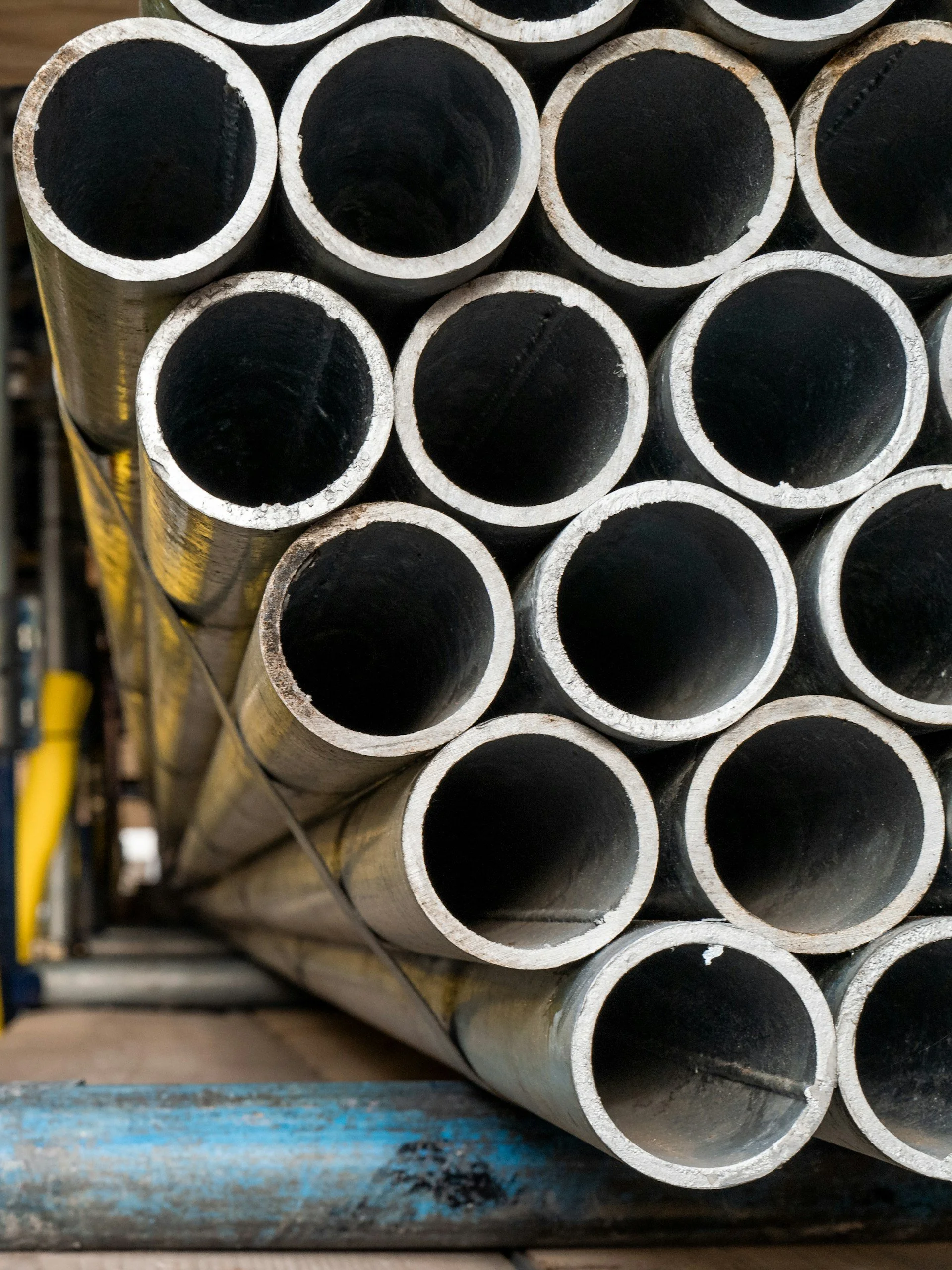Understand Plumbing Pipe Options
Older homes tend to have galvanized steel pipes as an alternative to lead pipes.
The plumbing pipes efficiently deliver water to different parts of the house or carry wastewater from the toilets to the septic tank. The plumbing pipe material homeowners choose determines the system’s overall durability and integrity.
Plumbing pipes have evolved considerably over the years. Homeowners should understand the different plumbing pipe options to choose the correct pipes for their water supply, drainage, and sewer systems. The wrong pipes may mean higher maintenance costs, plumbing disasters, and significant property damage. Here are the common home plumbing pipe options:
PEX
PEX, or cross-linked polyethylene, is a durable and affordable plastic pipe option for indoor hot- and cold-water supply lines. PEX pipes emerged in the late 1990s, and their flexibility, durability, and ease of installation and use have made them a popular choice for residential plumbing since then. PEX pipes are color-coded for convenience, resist rust or corrosion, and are available in various options and sizes. However, PEX pipes are not recyclable and cannot be used outside due to their susceptibility to deterioration from UV rays.
PVC
Drain, waste, and vent pipes often feature PVC or polyvinyl chloride pipes. They are best for cold water plumbing. PVC is popular for indoor and outdoor use in residential, commercial, and industrial applications. PVC pipes are strong, durable, affordable, lightweight, non-toxic, recyclable, and resistant to blockages and high water pressure. They have emerged as a popular alternative to traditional steel or copper pipes as they are easier to work with and resist rust or corrosion. However, PVC pipes come in limited size options and can get damaged due to extended UV light exposure or hot temperatures.
CPVC
Chlorinated polyvinyl chloride pipes are similar to PVC pipes but are harder, longer-lasting, and more durable. The higher chlorine content in CPVC pipes makes them more suitable for the main water supply line. CPVC pipes can handle hot water temperatures up to 200 degrees Fahrenheit. They are flexible, low-maintenance, easy to install, available in various sizes, and can preserve thermal loss. CPVC pipes are popular replacements for copper pipes in residential plumbing. CPVC is more expensive than PVC pipes and unsuitable for climates with fluctuating temperatures.
Copper
Copper pipes became popular around the 1960s and have long been the standard choice in residential plumbing. Copper pipes are environmentally friendly, aesthetically pleasing, durable, lightweight, and can handle intense heat and pressure. Copper pipes come in rigid and flexible varieties. However, copper pipes are expensive, require soldering for connections, and can corrode at the joints.
Galvanized steel
Older homes tend to have galvanized steel pipes as an alternative to lead pipes. These pipes were used for water supply, gas supply, and drainage. They are now common in gas piping and not used in water supply in remodeling or new construction projects. Galvanized steel is malleable, making it a good option for custom piping. Galvanized steel pipes are rigid, rust-resistant, and durable. The threaded connections of galvanized pipes make them easy to connect. On the downside, galvanized steel pipes are challenging to repair and replace. They can also result in discoloration and can contaminate the water supply. Galvanized steel pipes can corrode eventually, leading to blockages.
Choose the right plumbing pipes
Contact a professional plumbing company to determine the best plumbing pipe option. They will help you choose based on budget, water type, sunlight exposure, water pressure requirements, and local building codes.
Trust Adaven Plumbing for an effectively and efficiently functioning plumbing system. We provide drain cleaning, water leak detection and repair, toilet repairs, home repiping, faucet repair and replacement, and slab leak detection and repair services in Las Vegas, Henderson, and Enterprise. Give us a call at 702-766-3320.

